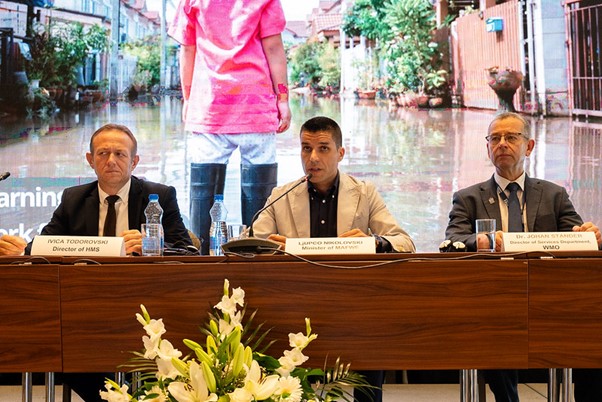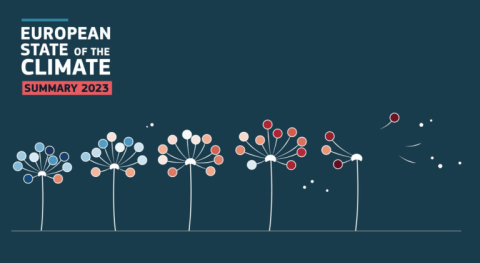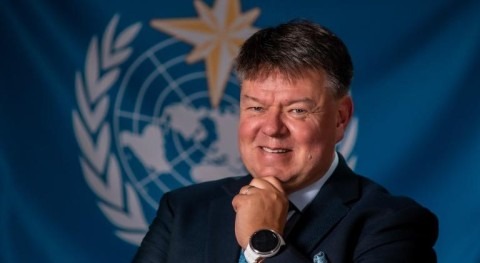The Flash Flood Guidance System (FFGS) has been instrumental in saving lives and reducing losses from flash flooding in 72 countries, benefitting over 3 billion people.
The FFGS played a crucial role recently during Cyclone Freddy, which hit Malawi hard from March 11 to 15, 2023. Using the FFGS, the Department of Climate Change was able to alert the public about the heavy rains and potential flood risks. From March 11, they started issuing these warnings daily, and later, even twice a day. The important updates were shared with the public through newspapers, radio, TV, emails, and WhatsApp groups.
However, flash floods continue to significantly threaten lives, livelihoods, and property, especially with the added challenges of climate change and unplanned development in flood-prone areas. To tackle this global issue, concerted actions are required at the global, regional, and national levels to enhance existing systems and extend coverage to more countries, aligning with the Early Warnings for All initiative to ensure that early warning systems protect everyone on Earth within the next five years.
The Second Global Workshop on the Flash Flood Guidance System took place in Skopje, North Macedonia, from 19th to 23rd June 2023 and saw active participation from 203 representatives representing 64 countries. The successful organization of this event was made possible through the support of the host nation and various organizations, notably the United States Agency for International Development (USAID) and the National Meteorological and Hydrological Service of North Macedonia. The workshop aimed to foster greater collaboration among hydrometeorological forecasters and disaster managers, facilitating meaningful discussions and initiatives in the field of flash flood preparedness and response.
"Flash floods are not limited to our country alone. Our neighboring countries, as well as the entire Balkan and southeastern Europe, are also grappling with the same situation, which underscores the need for regional and global cooperation," stated Mr. Ljupcho Nikolovski, Minister of Agriculture, Forestry, and Water Economy of North Macedonia. He voiced his full support for the endeavors of the Hydrometeorological Service of the Republic of North Macedonia, emphasizing the importance of bolstering their capabilities in hydrometeorological observations and forecasting systems.

We are here to collaborate and enhance early warning systems, minimizing suffering, loss of lives, property, and environmental damage caused by flash floods. The FFGS plays a crucial role in the complete warning system cycle," stated Dr. Johan Stander, Director of the Services Department at the World Meteorological Organization (WMO), during the opening session of the WMO Second Flash Flood Guidance System Global Workshop. He emphasized that providing a mere 24-hour notice of an impending hazardous event could lead to a significant 30 percent reduction in overall damage.
Dr. Sezin Tokar, Lead Senior Hydrometeorological Hazards and Disaster Risk Reduction Advisor at USAID/BHA, stated that participants in the First FFGS Global Workshop recognized that the implementation of FFGS has resulted in a substantial reduction in the loss of life and property, especially considering the challenges posed by a growing global population, expanding urban areas, encroachment into flood-prone regions by communities, and the increasing frequency and intensity of flash floods due to climate change.
The World Meteorological Organization (WMO), in partnership with the United States Agency for International Development/Bureau for Humanitarian Assistance (USAID/BHA), U.S. National Weather Service/National Oceanic and Atmospheric Administration (US. NWS/NOAA), the Hydrologic Research Center (HRC) has developed and implemented the Flash Flood Guidance System (FFGS), globally. The implementation of the system on a global scale is primarily funded by USAID/BHA, with additional support from other funding mechanisms like the Climate Risk and Early Warning Systems (CREWS), Environment and Climate Change Canada (ECCC), and World Bank (WB).
The Skopje Statement urges the decision-makers and stakeholders to recognize the valuable benefits derived from the FFGS and to take action to strengthen the resilience of the countries by supporting the National Meteorological and Hydrological Services (NMHSs) in its implementation. This Statement also details the main findings of the workshop and outlines recommendations for implementing FFGS in the future, including empowering women in the decision-making process, which is critical for inclusive and sustainable outcomes. More information on the Second FFGS Global Workshop landing page.


















